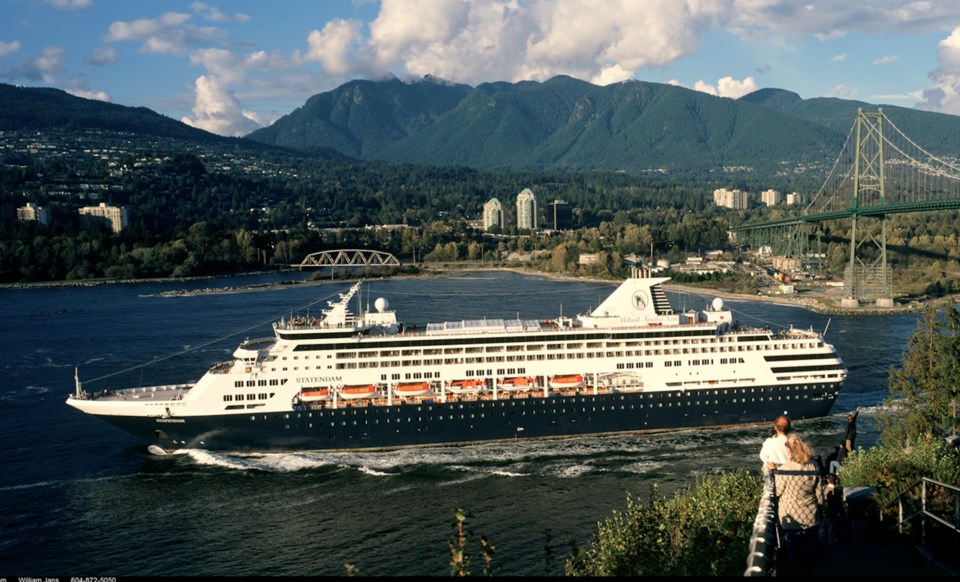–°¿∂ ”∆µ is ending its cruise ship season this year with a near-record number of ships and passengers — an achievement all the more remarkable when you consider, according to government’s critics and the industry itself, the cruise sector in this province was supposed to be a smouldering apocalyptic ruin by now.
But oh what a difference a year can make. And a dose of reality.
It was only 18 months ago that cruise companies, Alaska politicians and the Opposition –°¿∂ ”∆µ Liberals collectively warned that –°¿∂ ”∆µ’s $3 billion annual cruise sector was irrecoverably harmed due to the incompetent bungling of Premier John Horgan and Prime Minister Justin Trudeau. According to them, the provincial and federal governments had been too strict with their COVID-19 protocols by failing to meet the US government’s demands to open Canadian ports so American cruise ships could meet legal requirements to dock in a foreign port on the way to Alaska.
Alaska’s congressional delegation even got a bill to bypass –°¿∂ ”∆µ passed through congress, the senate and President Joe Biden.
“Advice for @jjhorgan: don’t underestimate Don Young and the Alaska Delegation! Our bill, the ‘blip’ as you say, is now headed to be signed into law. This season, cruise passengers will safely sail to our state to support Alaska’s jobs and economy – not –°¿∂ ”∆µ’s,” tweeted the now late Alaska congressman Don Young.
And yet, today, if you check in with –°¿∂ ”∆µ’s three main cruise ports they’ll all tell you that the doom and gloom largely failed to materialize.
Victoria is on track to see almost 330 ships dock this year, carrying 725,000 passengers, which is up from 257 ships and 700,000 passengers pre-COVID in 2019.
“We’ve had a very successful year,” said Ian Robertson, CEO of the Greater Victoria Harbour Authority.
Vancouver expects 306 ships, which is a 6.5 per cent increase from the 288 in 2019.
“From our preliminary schedule for 2023, we’re expecting another nine per cent increase in ships for Vancouver, on top of this year’s numbers,” said Mandy Chan, the manager of cruise services for the Vancouver Fraser Port Authority.
“We’re continuing to see record years in terms of vessel numbers.”
In Prince Rupert, 42 ships arrived this year. “Certainly a record-breaking year — even when compared to pre-pandemic levels in 2019,” Tourism Prince Rupert’s Celidh Marlow told the C–°¿∂ ”∆µ.
Overall, it’s great news for –°¿∂ ”∆µ’s economy. It is also a far, far cry from the collapse of the industry that was the dominant issue in question period in the legislature in mid-2021.
Yes, much of this has to do with the province and Ottawa late last year striking a deal with the US and cruise industry on how to test and manage the COVID-19 risk for the 2022 season. And yes, that came after a concerted behind-the-scenes effort from the Canadian embassy in Washington to smooth over the political rough waters.
But, also, it’s clear, we overplayed the crisis.
And by we, I mean folks in the media like myself. Me. I predicted doom and gloom, and I got it wrong.
I admit I gave too much credence to the warnings from the cruise sector’s lobbyists. And that became a feedback loop, with the media, opposition, industry, and naysayers amplifying each other, pummeling the Horgan government on the issue for weeks while the premier sat perplexed at the eruption of American sabre-rattling going on at his expense.
It was not fun for the Horgan government. But it may ultimately have produced a good outcome.
Robertson said after the issue blew up in mid-2021, Horgan called him directly. He put Transportation Minister Rob Fleming in charge of the file (taking it away from then Tourism Minister Melanie Mark) and Fleming kickstarted what Robertson described as an “all hands on deck approach” to preventing harm to the sector.
“I was critical of the provincial government for not taking the appropriate steps, although they did listen and they have taken appropriate steps,” said Robertson.
“And I have to thank Minister Fleming for the really good work he did to elevate it with the embassy in Washington, and elevate it with the feds. And I do think after a conversation I had with Premier Horgan, he understands it as well.
“We’ve come a long long way and I’m confident the provincial government has made it a priority.”
A long way indeed, from a cruise ship crisis to a record-breaking year.




